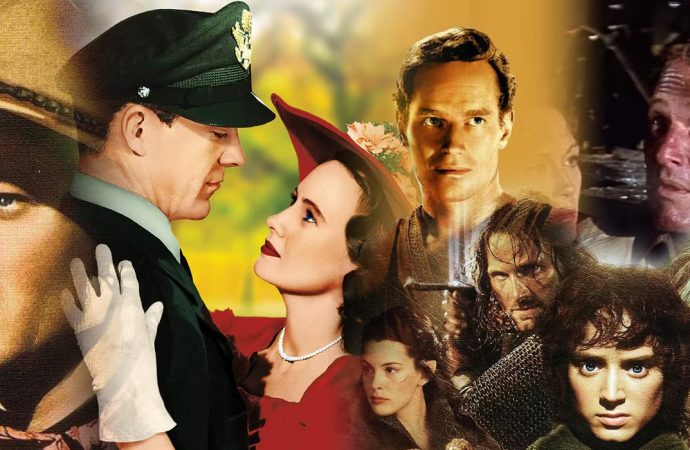Introduction Movies have changed a lot over the years. As the world changes, the types of movies people want to watch also change. Some genres stay popular, while others rise and fall in popularity. This article will take you through the most popular movie genres by decade. We’ll look at how history and society have
Introduction
Movies have changed a lot over the years. As the world changes, the types of movies people want to watch also change. Some genres stay popular, while others rise and fall in popularity. This article will take you through the most popular movie genres by decade. We’ll look at how history and society have affected the movies people loved at different times.
1930s: The Golden Age of Hollywood
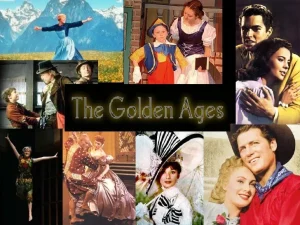
Image by: Yandex.com
1. Popular Genres: Adventure, Musicals, and Dramas
The 1930s was the time when Hollywood started to become the giant it is today. People wanted to escape the tough times of the Great Depression, so they turned to adventure, musicals, and dramas.
2. Adventure Films
Adventure movies were popular in the 1930s. Movies like King Kong (1933) and The Adventures of Robin Hood (1938) took people to exciting, faraway places. These films showed daring heroes and dangerous situations.
3. Musicals
Musicals were also a big hit. Movies like The Wizard of Oz (1939) made people feel happy and hopeful. With songs and dances, these films provided an escape from everyday life.
4. Dramas
Dramas, like Gone with the Wind (1939), showed the struggles of people going through difficult times. These movies were emotional and made people think about life during hard times.
1940s: War and Noir
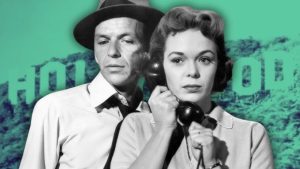
Image by: Yandex.com
1. Popular Genres: War Films, Film Noir, and Musicals
The 1940s were shaped by World War II. As the world fought a global war, films about war and tough characters took center stage.
2. War Films
War films were very popular in the 1940s. Movies like Casablanca (1942) and The Best Years of Our Lives (1946) showed stories of love, loss, and bravery during the war. These films helped lift people’s spirits during difficult times.
3. Film Noir
The 1940s also saw the rise of a dark, mysterious genre called film noir. Movies like Double Indemnity (1944) and The Maltese Falcon (1941) were filled with crime, suspense, and complicated characters. These films reflected the uncertainty of the post-war world.
4. Musicals
Musicals still had a big place in the 1940s. Classic films like Singin’ in the Rain (1952) brought songs and dances that made people smile and forget about the war.
1950s: Westerns and Sci-Fi
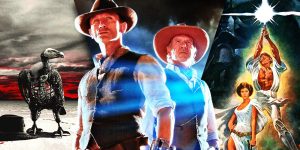
Image by: Yandex.com
1. Popular Genres: Westerns, Sci-Fi, and Drama
In the 1950s, life was changing. The Cold War was starting, and space exploration was becoming a big topic. These changes influenced the movie genres that were popular at the time.
2. Westerns
Westerns were very popular in the 1950s. Movies like Shane (1953) and High Noon (1952) told stories about brave heroes and the wild American West. These films were about good vs. evil and the freedom of the open frontier.
3. Sci-Fi
Science fiction films also became more popular in the 1950s. People were fascinated by space and the future. Movies like The Day the Earth Stood Still (1951) and Forbidden Planet (1956) showed exciting ideas about aliens and space travel.
4. Drama
Dramas about social issues were also important. Films like On the Waterfront (1954) and 12 Angry Men (1957) made people think about life, work, and social problems.
1960s: Change and Creativity

Image by: Yandex.com
1. Popular Genres: Counterculture Films, Musicals, and Action Films
The 1960s were a time of big social change. The civil rights movement, protests, and new ideas about freedom and equality shaped the films of the decade.
2. Counterculture Films
In the 1960s, many films started to challenge traditional ideas. Movies like Easy Rider (1969) and The Graduate (1967) told stories about young people rebelling against old ways. These films captured the spirit of the time.
3. Musicals
Musicals stayed popular in the 1960s. Films like The Sound of Music (1965) and My Fair Lady (1964) brought people together with beautiful music and big performances.
4. Action Films
Action films started to grow in popularity in the 1960s, especially with spy films like James Bond movies, beginning with Dr. No (1962). These films had thrilling action scenes and exciting plots.
1970s: Big Blockbusters
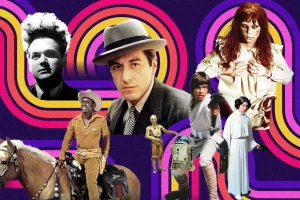
Image by: Yandex.com
1. Popular Genres: Action, Horror, and Drama
In the 1970s, movies started to get bigger, with some of the first “blockbusters” that people couldn’t stop talking about. Action films, horror films, and serious dramas took over the big screen.
2. Action Films
The 1970s brought films like Jaws (1975) and Star Wars (1977), which were full of excitement, adventure, and special effects. These films became massive hits and changed how movies were made.
3. Horror Films
Horror films became popular in the 1970s. Movies like The Exorcist (1973) and Halloween (1978) scared people and made them want to watch more films about ghosts, monsters, and the supernatural.
4. Dramas
The 1970s also saw many dramas that dealt with serious topics. Movies like One Flew Over the Cuckoo’s Nest (1975) and Taxi Driver (1976) showed deep, emotional stories about people facing challenges and social issues.
1980s: Action and Sci-Fi Thrills
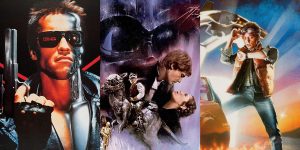
Image by: Yandex.com
1. Popular Genres: Action, Sci-Fi, and Comedies
The 1980s was a decade full of action, sci-fi, and humor. Movies became more high-tech, with exciting special effects and unforgettable action scenes.
2. Action Films
Action films reached new heights in the 1980s. Movies like Die Hard (1988) and Rambo (1982) were filled with thrilling chases, explosions, and tough heroes.
3. Sci-Fi
Science fiction continued to be a favorite, with movies like E.T. the Extra-Terrestrial (1982) and Back to the Future (1985). These films brought exciting ideas about space, time travel, and the future.
4. Comedies
Comedies also did well in the 1980s. Movies like Ghostbusters (1984) and Ferris Bueller’s Day Off (1986) mixed humor with action, making people laugh while keeping them entertained.
1990s: Animation and Independent Films
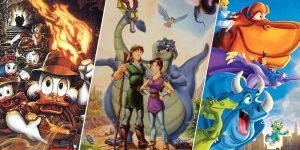
Image by: Yandex.com
1. Popular Genres: Animation, Action, and Drama
The 1990s saw the rise of animation, and independent films became more popular. Action and drama still ruled, but new and fresh ideas started to change how movies were made.
2. Animation
Animation grew in popularity in the 1990s. Movies like The Lion King (1994) and Toy Story (1995) used beautiful animation and told stories that both kids and adults loved.
3. Action Films
Action films kept being popular in the 1990s, with big hits like Titanic (1997) and films with deep characters and exciting stories.
4. Independent Films
Independent films became more popular in the 1990s. Directors like Quentin Tarantino made movies that were new and different, such as Pulp Fiction (1994), which made people see movies in a whole new way.
2000s: The Age of Franchises
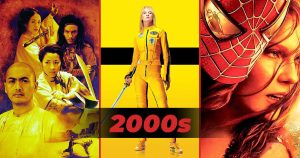
Image by: Yandex.com
The 2000s saw the rise of franchise films. Superheroes were no longer a niche genre and were embraced by audiences worldwide with films like Spider-Man (2002) and The Dark Knight (2008). At the same time, animated films gained mainstream popularity, with companies like Pixar leading the charge. This was also the era of action-packed films and fantasy sagas like The Lord of the Rings trilogy.
Popular Genres: Superhero, Animation, Fantasy, Action
Iconic Films: The Dark Knight (2008), Avatar (2009)
2010s: Diverse Genres and Streaming Growth
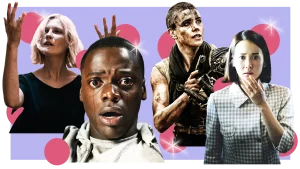
Image by: Yandex.com
The 2010s were marked by the rise of streaming platforms, which changed how films were consumed. Superhero and sci-fi films continued to dominate, but there was also a boom in indie films and documentaries. Additionally, the horror genre saw a resurgence, with films like Get Out (2017) blending social commentary with traditional horror.
Popular Genres: Superhero, Sci-Fi, Indie, Horror
Iconic Films: Avengers: Endgame (2019), Get Out (2017)
2020s: Streaming and Genre Blurring

Image by: Yandex.com
As we move into the 2020s, the streaming revolution has redefined movie genres. Films from various genres, including drama, action, and horror, now blend with elements of each other. Superhero films still dominate the box office, while genre-blending movies explore new territory. Furthermore, animated films continue to thrive, with a mix of family-friendly stories and adult-oriented films.
Popular Genres: Superhero, Drama, Action, Animated
Iconic Films: Spider-Man: No Way Home (2021), Soul (2020)
Movie Genres and Their Connection to History
Movie genres are often connected to the history and events happening in the world. For example, during the Great Depression, many people turned to comedies and musicals to lift their spirits. In times of war, action and war films became popular because they showed bravery and fighting for a cause. As history changes, the types of movies people want to watch also shift, reflecting the mood of the time.
The Role of Movie Genres in Shaping Expectations
Genres play a big role in setting expectations for a film. When people go to see a movie, they usually have an idea of what to expect based on the genre. For instance, a horror movie is expected to be scary, while a romantic comedy is meant to be funny and heartwarming. This helps audiences choose movies that match their mood, and it helps filmmakers understand the kind of experience they are creating.
How Movie Genres Influence Marketing
Movie genres also affect how movies are marketed. When a film is made in a specific genre, marketing teams know how to promote it to the right audience. For example, an action movie might be advertised with exciting trailers showing intense fight scenes, while a family movie might use bright colors and happy music to appeal to children and parents. By knowing the genre, marketing teams can better connect with the audience and attract more viewers.
How Movie Genres Help Filmmakers
Genres give filmmakers a way to focus their creativity. When a filmmaker chooses a genre, they know the kinds of stories and emotions they will explore. For example, in a horror movie, filmmakers create suspense and fear to keep the audience on the edge of their seat. In a romance, they focus on love and relationships. Genres give clear direction to the story and how it is told, making the movie more enjoyable for the audience.
Blending Genres for New Experiences

Image by: Yandex.com
In recent years, filmmakers have started blending different genres to create fresh and exciting films. For instance, a movie can mix comedy with horror to make a funny yet spooky experience. These “genre hybrids” allow filmmakers to reach different audiences by combining the best parts of multiple genres. Blending genres can also make movies feel unique and different from the usual types of films.
How Movie Genres Are Affected by Technology
Technology has changed the way movies are made and has had a huge impact on movie genres. Special effects and computer-generated images (CGI) allow filmmakers to create incredible visuals, making genres like science fiction and fantasy more exciting. With these tools, filmmakers can bring their wildest ideas to life, from flying spaceships to magical creatures. Technology has helped many genres grow and become more creative.
How Movie Genres Help Create Unique Experiences
Movie genres help create unique experiences for viewers. Each genre offers something different, whether it’s the thrill of an action film, the laugh-out-loud moments of a comedy, or the emotional depth of a drama. Genres make movies enjoyable by creating different worlds and emotions, allowing each film to give a one-of-a-kind experience. By offering so many different genres, cinema can appeal to all kinds of people, each looking for something different in a movie.
Challenges of Movie Genres
Despite their popularity, movie genres face some challenges. As audiences become more diverse, filmmakers must find ways to create stories that appeal to people from different backgrounds. There is also the challenge of making new and exciting movies within well-known genres, so they don’t feel repetitive. Additionally, with the rise of streaming services, competition between genres has increased, making it harder for certain genres to stand out.
Future of Movie Genres
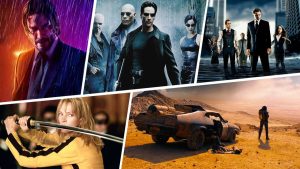
Image by: Yandex.com
The future of movie genres looks promising. With new technology, filmmakers will have even more tools to create innovative films, blending different genres together to create fresh experiences. Virtual reality, special effects, and AI might bring new genres to life, making films even more immersive and interactive. As audiences continue to evolve, we can expect to see even more diverse and creative movies that push the boundaries of traditional genres.
Comparative Table: Movie Genres by Decade
| Decade | Popular Genres | Famous Films |
|---|---|---|
| 1930s | Adventure, Musicals, Dramas | King Kong, The Wizard of Oz |
| 1940s | War, Film Noir, Musicals | Casablanca, Double Indemnity |
| 1950s | Westerns, Sci-Fi, Drama | Shane, The Day the Earth Stood Still |
| 1960s | Counterculture, Musicals, Action | Easy Rider, James Bond |
| 1970s | Action, Horror, Drama | Jaws, The Exorcist |
| 1980s | Action, Sci-Fi, Comedies | Die Hard, E.T. |
| 1990s | Animation, Action, Drama | The Lion King, Pulp Fiction |
Analysis Table: How Movie Genres Changed Over Time
| Decade | Genre Impact | What’s Happening in the World? |
|---|---|---|
| 1930s | Escapism, Hope | Great Depression, need for escape |
| 1940s | Patriotism, Darkness | World War II, post-war changes |
| 1950s | Exploration, Heroes | Cold War, space race |
| 1960s | Rebellion, Creativity | Civil Rights, protests, freedom |
| 1970s | Excitement, Fear | Post-Vietnam War, growing tension |
| 1980s | Action, Technology | Economic boom, high-tech growth |
| 1990s | Animation, Diversity | Digital technology, youth culture |
Conclusion
Over the decades, movie genres have reflected what was happening in the world. From the adventure films of the 1930s to the action-packed movies of the 1980s, cinema has evolved as society has changed. By looking at these popular movie genres, we can see how films connect with the time they were made and how they continue to entertain and inspire audiences today.

